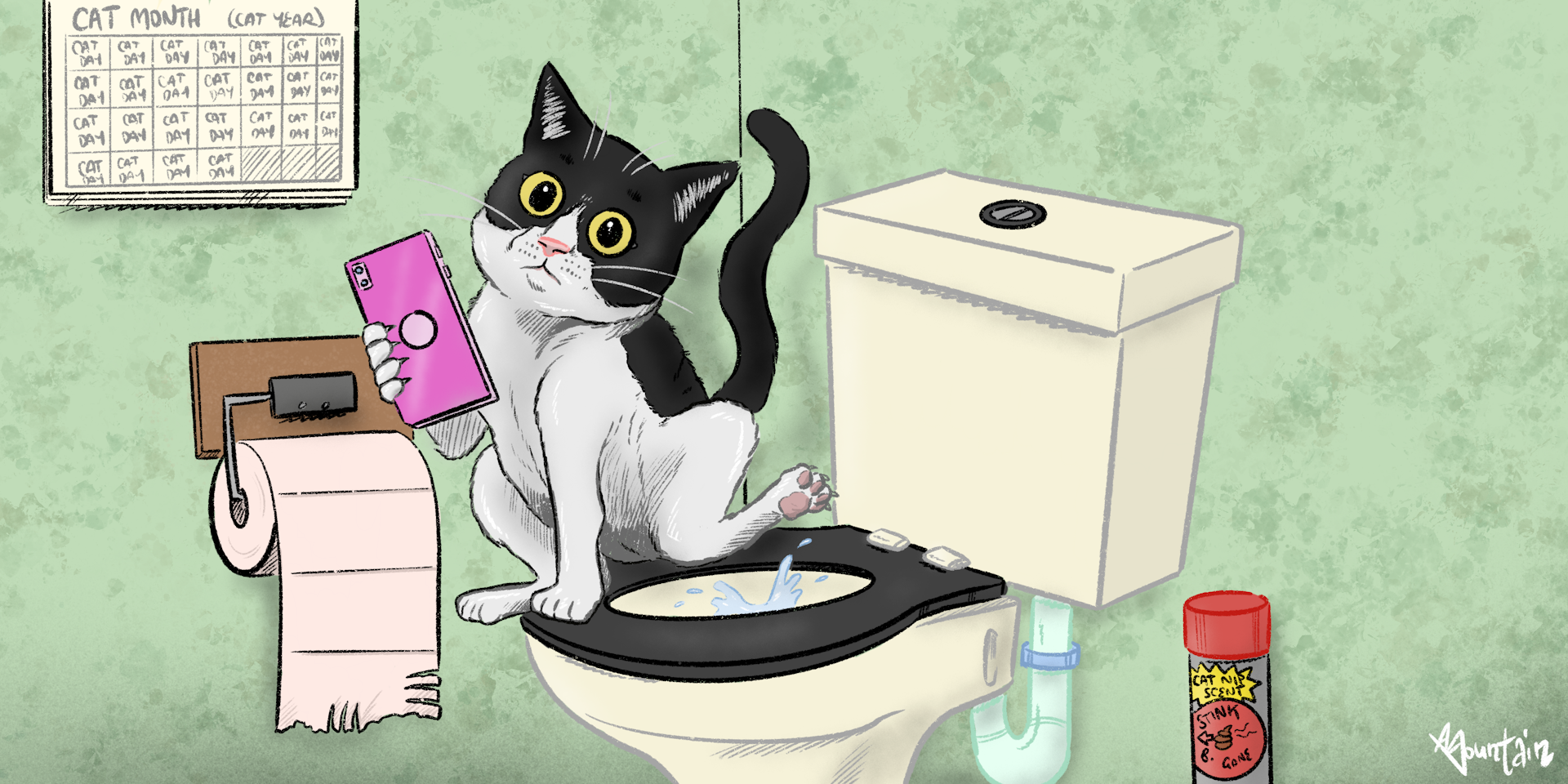Prevent Clogs and Damage: Never Flush Cat Poop Down Your Toilet - Professional Recommendations
Prevent Clogs and Damage: Never Flush Cat Poop Down Your Toilet - Professional Recommendations
Blog Article
The article author is making a few good observations on the subject of How to Dispose of Cat Poop and Litter Without Plastic Bags overall in this post on the next paragraphs.

Intro
As pet cat owners, it's important to bear in mind how we dispose of our feline buddies' waste. While it might appear hassle-free to purge cat poop down the bathroom, this technique can have detrimental repercussions for both the atmosphere and human health and wellness.
Ecological Impact
Flushing pet cat poop introduces dangerous pathogens and parasites into the supply of water, posturing a significant risk to marine environments. These contaminants can negatively impact aquatic life and concession water high quality.
Health and wellness Risks
Along with ecological concerns, flushing pet cat waste can also posture health dangers to humans. Pet cat feces might have Toxoplasma gondii, a bloodsucker that can create toxoplasmosis-- a possibly serious health problem, especially for expecting women and individuals with damaged immune systems.
Alternatives to Flushing
Luckily, there are much safer and much more responsible means to take care of feline poop. Take into consideration the following choices:
1. Scoop and Dispose in Trash
The most common technique of getting rid of pet cat poop is to scoop it into an eco-friendly bag and throw it in the trash. Make certain to use a devoted trash scoop and take care of the waste without delay.
2. Usage Biodegradable Litter
Select biodegradable pet cat litter made from materials such as corn or wheat. These clutters are eco-friendly and can be securely taken care of in the trash.
3. Hide in the Yard
If you have a lawn, consider burying pet cat waste in a marked location away from veggie gardens and water resources. Make certain to dig deep sufficient to stop contamination of groundwater.
4. Install a Pet Waste Disposal System
Purchase a family pet waste disposal system especially designed for feline waste. These systems use enzymes to break down the waste, decreasing smell and ecological impact.
Final thought
Responsible pet dog ownership prolongs beyond giving food and shelter-- it also entails proper waste monitoring. By avoiding purging feline poop down the toilet and selecting alternative disposal techniques, we can decrease our environmental impact and protect human health.
Why You Should Never Flush Cat Poop Down the Toilet
A rose by any other name might smell as sweet, but not all poop is created equal. Toilets, and our sewage systems, are designed for human excrement, not animal waste. It might seem like it couldn’t hurt to toss cat feces into the loo, but it’s not a good idea to flush cat poop in the toilet.
First and foremost, assuming your cat uses a litter box, any waste is going to have litter on it. And even the smallest amount of litter can wreak havoc on plumbing.
Over time, small amounts build up, filling up your septic system. Most litter sold today is clumping; it is made from a type of clay that hardens when it gets wet. Ever tried to scrape old clumps from the bottom of a litter box? You know just how cement-hard it can get!
Now imagine just a small clump of that stuck in your pipes. A simple de-clogger like Drano isn’t going to cut it. And that means it’s going to cost you big time to fix it.
Parasitic Contamination
Believe it or not, your healthy kitty may be harboring a nasty parasite. Only cats excrete Toxoplasma in their feces. Yet it rarely causes serious health issues in the cats that are infected. Most people will be fine too if infected. Only pregnant women and people with compromised immune systems are at risk. (If you’ve ever heard how women who are expecting are excused from litter cleaning duty, Toxoplasma is why.)
But other animals may have a problem if infected with the parasite. And human water treatment systems aren’t designed to handle it. As a result, the systems don’t remove the parasite before discharging wastewater into local waterways. Fish, shellfish, and other marine life — otters in particular — are susceptible to toxoplasma. If exposed, most will end up with brain damage and many will die.
Depending on the species of fish, they may end up on someone’s fish hook and, ultimately on someone’s dinner plate. If that someone has a chronic illness, they’re at risk.
Skip the Toilet Training
We know there are folks out there who like to toilet train their cats. And we give them props, it takes a lot of work. But thanks to the toxoplasma, it’s not a good idea.

We were made aware of that article on How to Dispose of Cat Poop and Litter Without Plastic Bags through a friend on our other blog. Remember to set aside a second to share this entry if you enjoyed reading it. Thank-you for taking the time to read it.
Schedule An Appointment Report this page